
Ants are common in most households, which can be quite a nuisance. While some people may attempt to deal with an ant infestation on their own, there are certain situations when it is best to call a professional. Knowing when to call an exterminator can save homeowners time, money, and frustration.
When deciding to call an exterminator for ants, consider the severity of the infestation. If the ant problem is relatively minor, such as a few ants in the kitchen or bathroom, handling it on your own with store-bought ant baits or sprays may be possible. However, if the infestation is more widespread or has been going on for an extended time, it is likely best to seek professional help.
Another important consideration is the type of ants present. Some species of ants, such as carpenter ants, can cause structural damage to sheds or homes if left unchecked. Other types of ants, such as fire ants, can pose a danger to humans and pets due to their painful stings. In these cases, calling an exterminator as soon as possible is essential to prevent further damage or injury.
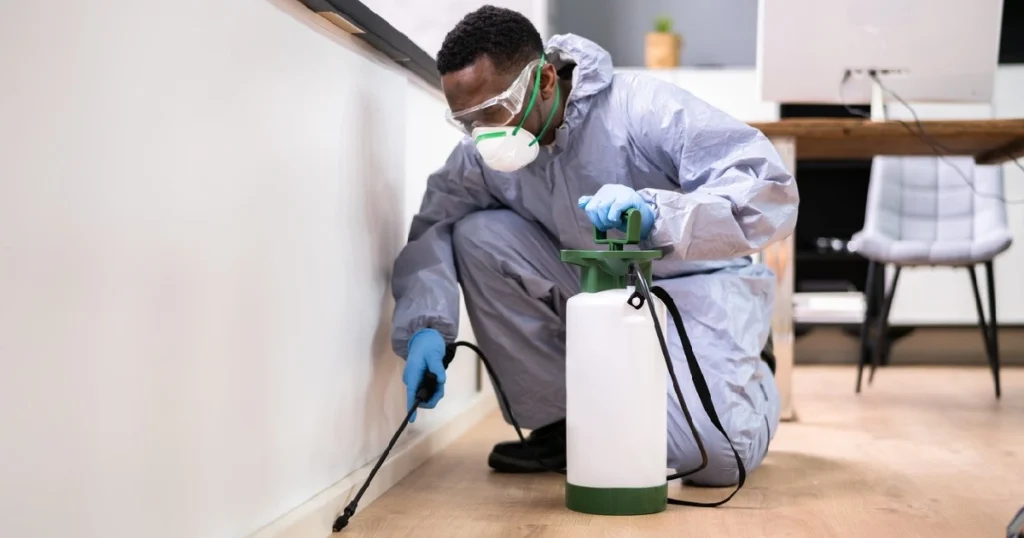
Ants are a common household pest that can be difficult to control once they establish a colony. It's important to understand the signs of an ant infestation, the types of ants, and their behaviors to address the problem effectively.
You can note an ant infestation by several signs, including:
There are many types of ants, each with their behaviors and habits. Common types of ants include:
Understanding the type of ant causing the infestation is important to understand the most effective control method.
Contact a professional ant control service if you are facing an ant infestation. An ant exterminator can identify the type of ant and recommend the most effective treatment plan. Proper treatment and prevention measures can effectively control an ant infestation.
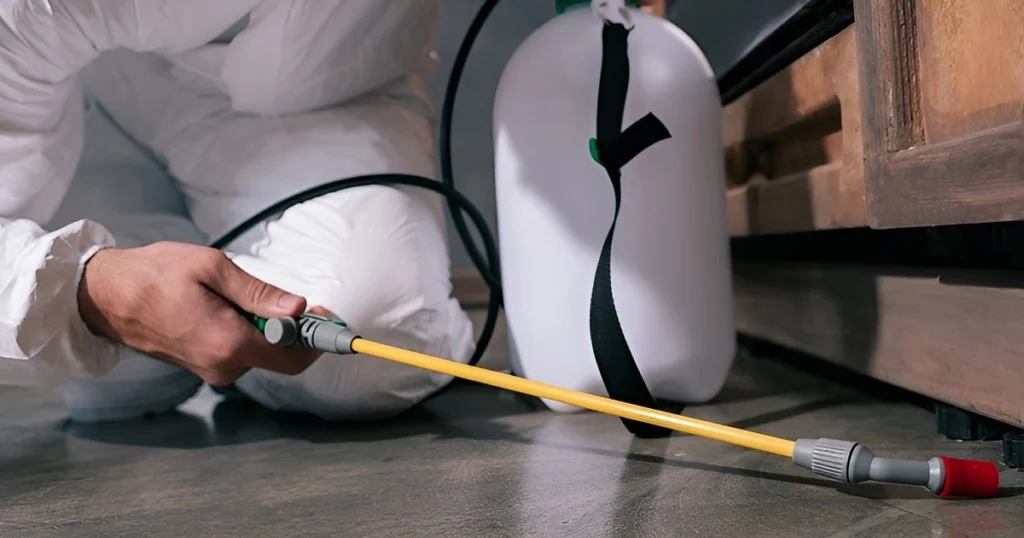
Ants can be a nuisance, but when should you call a professional exterminator? Follow these guidelines to determine when to seek professional help.
If you are dealing with a small ant problem, you can likely handle it alone. However, if you have a large fire ant infestation or are dealing with a particularly aggressive species of ant, it’s time to call the professionals.
These are signs you need professional help:
While it may be tempting to try to handle an ant problem on your own, there are several benefits to hiring a professional exterminator.
First, a professional can identify the species of ant you are dealing with and use the most effective ant treatment methods. They can also locate and treat ant nests, which can be difficult to find alone.
Second, professional ant control is often more effective than DIY methods. Exterminators can access stronger pesticides and equipment to quickly and thoroughly eliminate ants.
Finally, hiring a professional can save you time and money in the long run. If you try to handle an ant problem on your own and it doesn't work, you may spend more money on DIY methods and waste time trying to eliminate the ants.
In conclusion, calling a professional exterminator is best when dealing with a large or difficult ant infestation. Pest control experts know how to eliminate ants from your home and prevent future infestations.
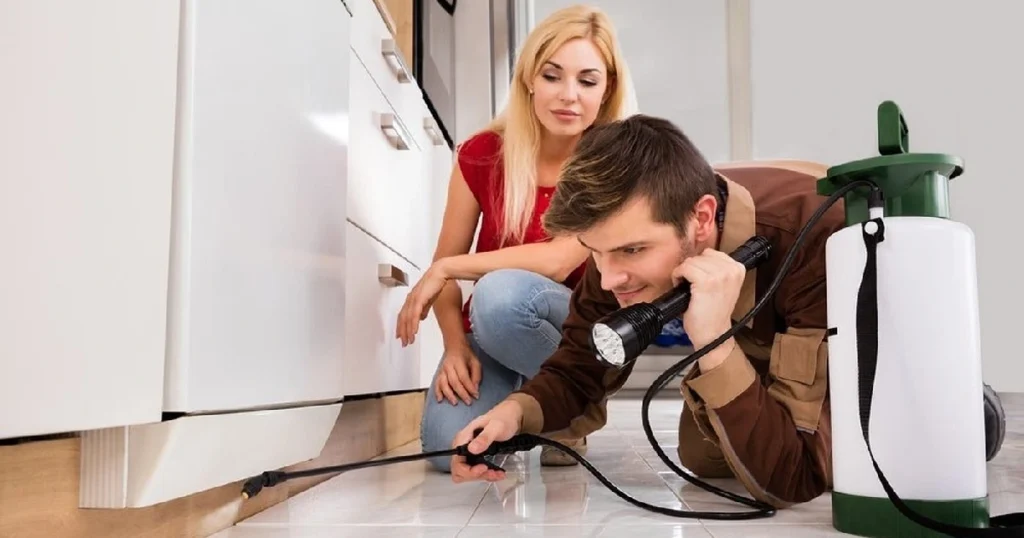
Ant infestations can be a common problem in households and can be a nuisance to deal with. While some homeowners may opt for DIY ant control methods, others may prefer to seek professional extermination services. In this section, we will discuss the effectiveness of home remedies and the limitations of DIY methods compared to professional extermination.
Home remedies for ant control can be cost-effective for homeowners who prefer to handle the problem themselves. Some popular DIY methods include vinegar, lemon juice, cinnamon, and borax. While these methods can provide temporary relief, they do not 100% effectively eliminate the ant infestation.
Professional exterminators have access to specialized equipment and chemicals unavailable to homeowners. They can identify the type of ant species and use custom treatments to eliminate the infestation effectively. In addition, exterminators can also provide preventative measures so the infestation does not return.
DIY methods for ant control may have limitations, especially in cases of severe infestations. Home remedies may not effectively reach hidden nests and eliminate the queen ant, which can result in persisting infestation.
Professional experts can identify the cause of an infestation and design a customized solution. They can also advise on how to prevent future infestations and maintain a pest-free environment.
In conclusion, while DIY methods may effectively control minor ant infestations, they are insufficient for severe or recurring ant traffic. Seeking professional extermination services can provide a more effective and long-term solution for ant control.
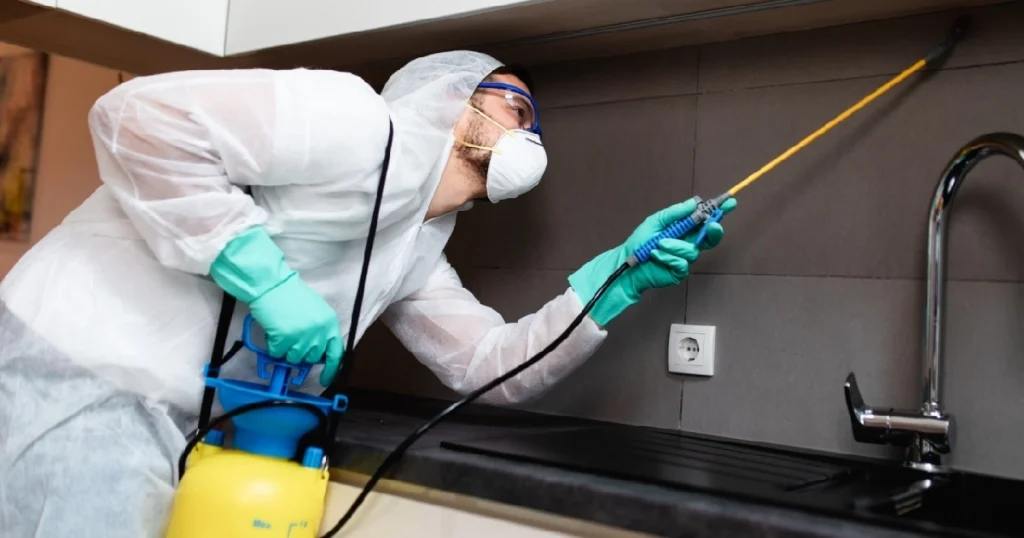
Ant infestations can be a persistent problem; calling a professional exterminator is often the best solution. The extermination process typically involves three main steps: inspection and identification, treatment options, and follow-up and prevention.
The first step in the extermination process is thoroughly inspecting the affected area. The exterminator will look for signs of ant activity, such as trails, nests, and entry points. Once the ants have been identified, the exterminator will determine the best course of action based on the ant species and the infestation's severity.
Several treatment options are available for ant infestations, including baiting, spraying, and dusting. Baiting involves placing poisoned bait in strategic locations to attract the ants, while spraying and dusting involve applying insecticides directly to the affected areas. The exterminator will choose the best treatment option based on the circumstances of the infestation.
An exterminator takes time to get rid of ants. Their work can vary depending on the house structure they are treating or the severity of the infestation. However, most ant pest control services can effectively eliminate an infestation within a few days to weeks.
After the initial treatment, the exterminator typically schedules a follow-up visit to ensure the infestation has been completely eradicated. They also offer recommendations to prevent future infestations, like sealing entry points and keeping your household clean and food debris-free.
In conclusion, calling a professional exterminator is often the best way to deal with ant infestations. Homeowners can successfully eliminate ant infestations and prevent them from recurring by following the proper inspection, treatment, and prevention techniques.
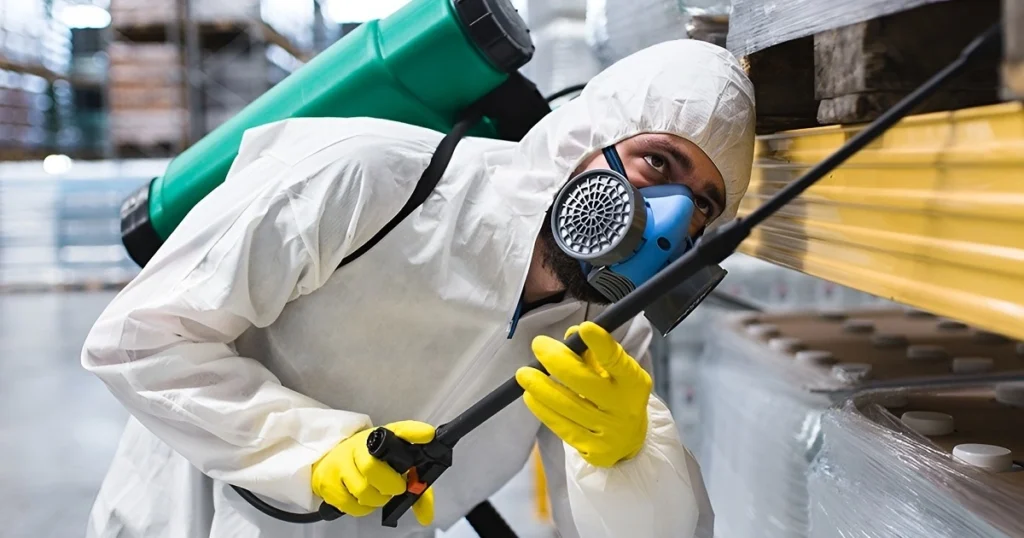
Choosing the right exterminator can make all the difference when dealing with ants. Consider the following when choosing an exterminator:
It is important to choose an exterminator with the proper qualifications and experience. Look for an exterminator who is licensed and insured. This ensures they have the necessary training and knowledge to handle the job safely and effectively. Additionally, ask about their experience dealing with ant infestations specifically. An experienced exterminator will know the best methods for eliminating ants and preventing future infestations.
Cost always affects the choice of an exterminator, but it should not be the only consideration. Look for an exterminator who offers a clear and detailed service agreement. This should include information about the services they will provide, the cost of those services, and any guarantees or warranties they offer. Be wary of exterminators who offer vague or incomplete agreements.
When comparing costs, remember that the cheapest option is not the best. Look for an exterminator who offers fair and competitive pricing, provides high-quality service, and uses safe and effective methods.
Considering these factors, you can choose an exterminator to eliminate your ant infestation and prevent future problems effectively.
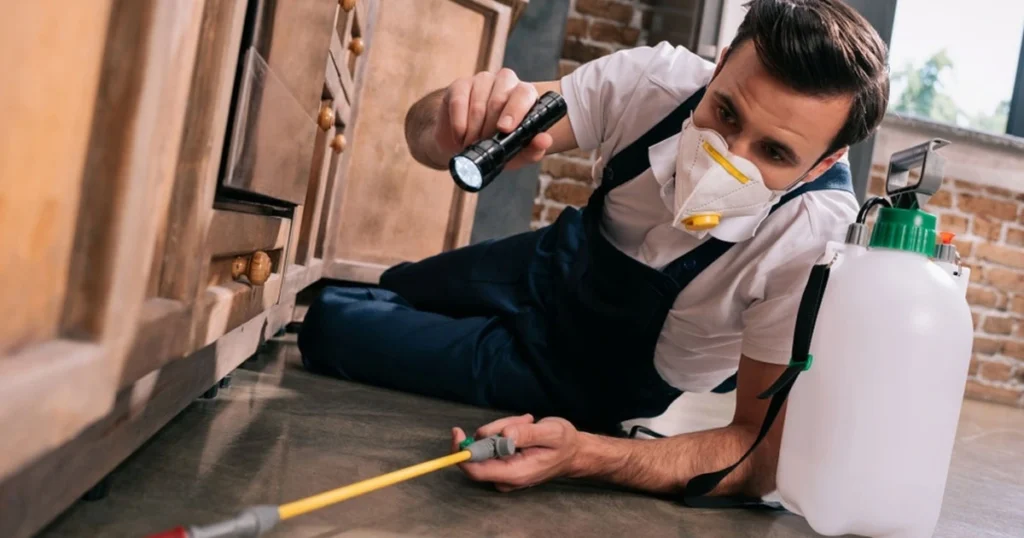
Chemicals are often used to control ants. However, it is important to use them safely. Read the label, follow the instructions, and be careful. Some chemicals can harm humans and pets, so keeping them out of reach is important.
Wear protective clothing when handling chemicals. This includes gloves, eye protection, and a mask if necessary. After using chemicals, make sure to wash your hands thoroughly.
When using chemicals to control ants, keeping pets and children away from the treated areas is important. These chemicals are harmful if ingested or inhaled. It is recommended that pets and children away from treated areas for 24 hours.
If you have pets, choosing a pest control company that uses pet-friendly products is important. Some chemicals can be harmful to pets, especially cats. If you have pets in your home, inform the pest control company.
Prioritize health and safety when dealing with ants. If you are unsure how to safely control ants in your home, call an ant control service. They know how to do so safely and effectively.
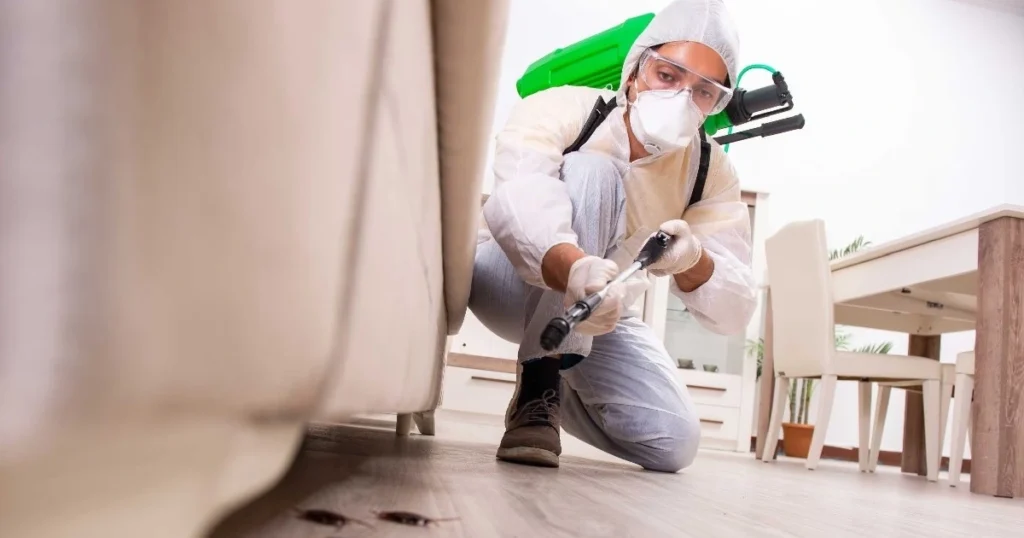
Ants are a common household pest that can be difficult to control once they have established a colony. However, homeowners can take several preventive measures to reduce the likelihood of an infestation.
A clean and sanitary environment is the most effective way to prevent ants from entering a home. This includes regularly wiping down countertops, sweeping floors, and storing food in sealed containers. Cleaning up spills or crumbs promptly is also important to avoid attracting ants.
In addition to general cleanliness, homeowners should seal any cracks or gaps in their homes' walls, floors, or foundations. This can help prevent ants from entering and establishing a colony.
Another important aspect of ant control is maintaining a barrier around the home's exterior. This can include landscaping techniques such as trimming trees and bushes away from the home and installing physical barriers such as gravel or mulch.
Additionally, homeowners can use insecticides or bait stations around the perimeter of their homes to deter ants from entering. It is important to follow these products' instructions carefully and use them only as directed.
While these preventive measures can effectively reduce the likelihood of an ant infestation, they may not always be enough to eliminate a colony. In these cases, a professional exterminator may be necessary to evaluate the situation and design a custom treatment plan.
By proactively preventing ants from entering the home, homeowners can reduce the likelihood of an infestation and protect their property from damage.
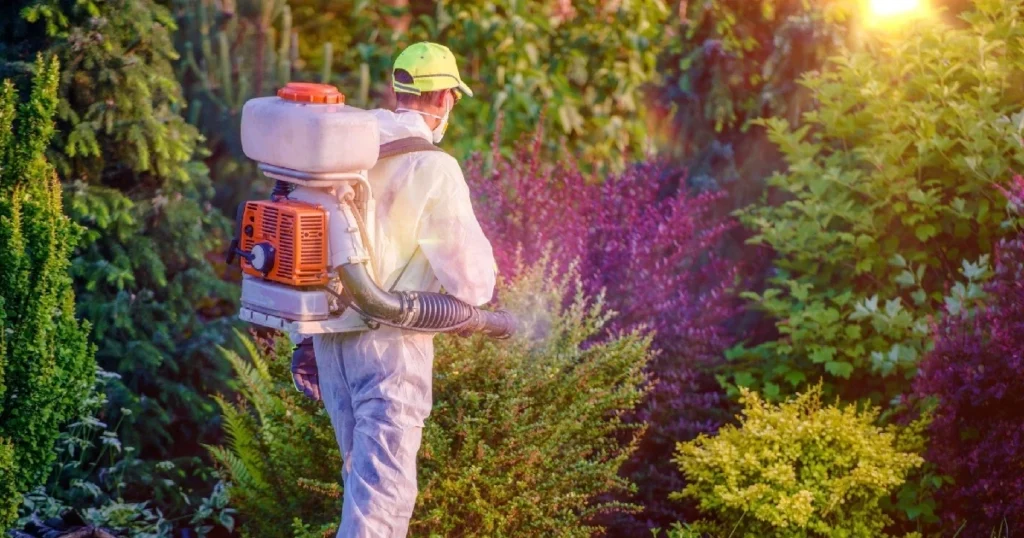
Landscaping and exterior barriers can be effective measures when preventing ants from invading a home. Ants are drawn to food and water, so it is important to eliminate these attractants from the home's exterior.
One way to do this is to remove any standing water or moisture sources near the home, such as leaky pipes or clogged gutters. Additionally, keeping food sources, such as pet food or birdseed, in sealed containers can prevent ants from being attracted to them.
Landscaping can also prevent ants from entering the home. Trimming plants and trees away from the home prevents ants from bridging them to your home. Additionally, creating a barrier of gravel or rocks around the home's perimeter can make it more difficult for ants to enter.
Calling an exterminator may be necessary if landscaping and exterior barriers are ineffective in preventing ant infestations.
Ants are a common household pest that can quickly become a nuisance if left untreated. While it may be tempting to try DIY solutions, sometimes calling in a professional exterminator is the best action.
When to Call an Exterminator for Ants:
Critter Stop, a professional humane wildlife removal company, can help solve your ant infestation issues. With a fantastic reputation and customer reviews online, Critter Stop provides high quality work and great customer service.
Call Critter Stop at (214) 234-2616 for a free inspection. Experts will handle your ant infestation using safe and effective methods. Don't let ants take over your home—call Critter Stop today.
If you notice a few ants here and there, it's not necessarily time to call an exterminator. However, if you see a large number of ants, especially if they are coming from inside the walls, it's best to call an exterminator as soon as possible. Additionally, if you have tried DIY methods and they are not working, it's time to call in a professional.
When choosing an ants control service, look for a company with experience, a good reputation, and a commitment to using safe and effective methods. Additionally, make sure the company is licensed and insured.
The basic offerings of any ants service should include a thorough inspection of the property, identification of the ant species, treatment options, and a follow-up plan to prevent future infestations.
Professional exterminators have the knowledge and tools to eliminate ant infestations effectively. However, the success of the treatment depends on the severity of the infestation and the homeowner's cooperation in following the recommended prevention measures.
Eliminating an ant infestation inside walls can be challenging, but it is possible with the help of a professional exterminator. The exterminator may use baits or insecticides to penetrate walls and reach the ant colony.
Ant presence in a home qualifies as an infestation when there are many ants, causing damage to the property or posing a health risk. If unsure whether you have an infestation, it's best to call a professional for an inspection.
It's best to call an exterminator immediately after noticing an ant infestation. The longer you wait, the more difficult it will be to eliminate the infestation and prevent future ones.
Hiring a local ant pest control service can have advantages, such as a quicker response time and familiarity with the local ant species. However, choosing a company based on their experience and reputation is important rather than just their location.
The time it takes for an exterminator to get rid of ants depends on the severity of the infestation and the treatment method used. Some infestations can be eliminated in a single treatment, while others may require multiple treatments over several weeks.
You may not need an exterminator if you have a small number of ants and can control them with DIY methods. However, if you have a large infestation or cannot control the ants, it's best to call a professional for help.
Visit our Critter Library and learn more about our furry friends